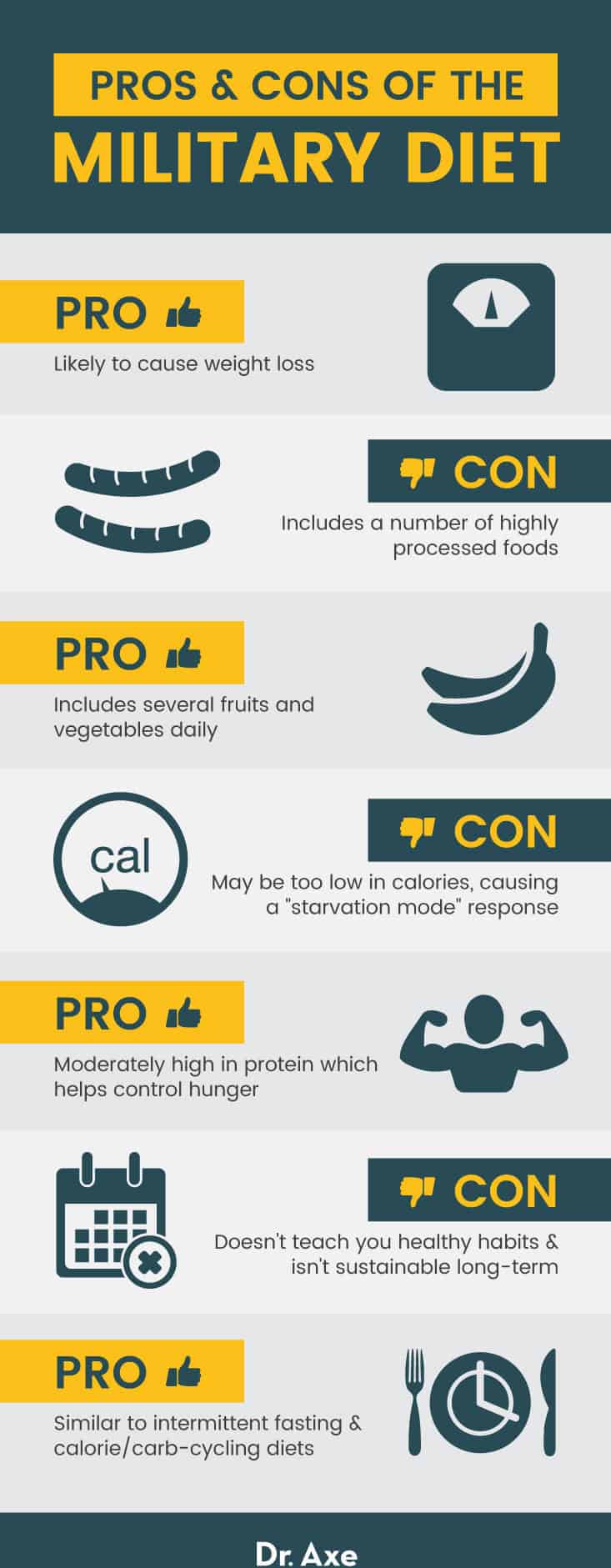This Dr. Axe content is medically reviewed or fact checked to ensure factually accurate information.
With strict editorial sourcing guidelines, we only link to academic research institutions, reputable media sites and, when research is available, medically peer-reviewed studies. Note that the numbers in parentheses (1, 2, etc.) are clickable links to these studies.
The information in our articles is NOT intended to replace a one-on-one relationship with a qualified health care professional and is not intended as medical advice.
This article is based on scientific evidence, written by experts and fact checked by our trained editorial staff. Note that the numbers in parentheses (1, 2, etc.) are clickable links to medically peer-reviewed studies.
Our team includes licensed nutritionists and dietitians, certified health education specialists, as well as certified strength and conditioning specialists, personal trainers and corrective exercise specialists. Our team aims to be not only thorough with its research, but also objective and unbiased.
The information in our articles is NOT intended to replace a one-on-one relationship with a qualified health care professional and is not intended as medical advice.
Military Diet Plan for Weight Loss? Potential Benefits vs. Dangers
May 3, 2023

Supporters of the very low-calorie “military diet” claim that you can lose up to 10 pounds in less than one week if you follow the diet precisely. But can you actually lose 10 pounds in just three days, and if so, is it even healthy to do so?
Many experts believe that when people lose weight very quickly due to severely restricting their calorie intake that they are actually losing a combination of water, some fat mass and also some muscle mass.
A fast decline in water that’s stored inside muscles and other tissues is likely the primary reason that someone can drop pounds so quickly when following a calorie-restrictive plan, such as the three day military diet.
The problem with “crash diets” is that once the diet ends and people return to their normal ways of eating, they are likely to gain back most or all of the lost weight. Knowing that, is the military diet a weight loss plan that is effective and worth a try, or just another quick-fix diet fad?
What Is the Military Diet?
The military diet is a very low-calorie diet plan that some people choose to follow several days per week in hopes of losing weight quickly.
How much weight loss might the military diet lead to? In other words, what type of “before and after results” can you expect? It may be possible to lose up to 10 pounds in 3–7 days when starting this diet, according to those who promote the diet.
However, there isn’t much evidence that this speed of weight loss will occur for every person, and even if it does, there are definitely still some drawbacks of the military diet to be aware of.
The military diet is also sometimes called the “three day military diet” due to how it restricts calories for three days of the week.
Does the military diet work exactly? The diet is split into two parts over a one-week period: for three days straight you limit your calorie intake while you adhere to the diet’s strict meal plan, and then for the next four days you “take off” from the diet and eat normally.
The four days of the week when calories are not purposefully being restricted you can eat whatever you’d like to for the most part, although some people also choose to restrict calories these days as well in order to further accelerate weight loss.
The military diet does not exclude any specific types of foods, such as all animal products or all grains, and is not very low in only one specific macronutrient (carbs, fat or protein).
The military diet promotes weight loss simply because it’s very low in calories — but this doesn’t necessarily mean that it’s healthy.
How many calories are in the military diet? Following the diet carefully for three days will keep daily calorie intake to only about 800–1,100, which is far less than adults need to maintain their weight and cover all their nutrient needs.
Can you drink water on the military diet? Yes, since water provides zero calories.
Background
Did anyone with a military background actually help create the three day military diet? Although the name implies that people who are either hoping to join the military or who are already in it use the diet to shed weight quickly and perhaps stay in shape, there isn’t any evidence that the military diet actually has any true ties to the military.
For example, a reporter from CNN interviewed several officials from from the U.S. military — including one nutrition specialist who helps design meal plans for active members of the military — to find our their opinions on the diet.
Officials who reviewed the diet told CNN that most people in the military had never even heard of “the 3-day military diet,” military officials definitely did not help develop the diet, and the 3-day military diet plan had “absolutely no resemblance to the real military diet” since it includes less calories and lower levels of nutrients. Those aren’t exactly the best 3-day military diet reviews.
Some also claim that the 3-day military diet is supported by major organizations, including the American Heart Association, the Cleveland Clinic, the Mayo Clinic and Birmingham Hospital. But again, representatives from these organizations have stated that they are in no way tied to the military diet and had nothing to do with its creation — calling in to question the military diet reviews out there.
It’s not exactly clear who did start the military diet and continues to be responsible for its growing popularity, but overall it doesn’t have a very credible history. The diet appears to be not much more than another fad diet scheme that has gained a growing following online.
The bottom line? There haven’t been any published studies showing that the military diet is effective, safe or beneficial in any way long-term, so trying another weight loss approach seems like a wise idea.
Food List
What do you eat on the military diet?
Foods that are allowed as part of the the military diet, which you should include in your shopping list and weekly menu, include:
- Grapefruit, apples and bananas
- Whole wheat toast and saltine crackers
- Canned tuna fish
- Cottage cheese and hard cheddar cheese
- Eggs
- Meat of any kind, including processed meats like hot dogs
- Green beans, broccoli, carrots
- Peanut butter
- Vanilla ice cream
- Black coffee (with no cream and sugar added, but stevia is allowed) and water
There are a number of foods that are you won’t find included in the military diet plan menu, even some healthy foods since they still increase overall calorie intake. During the three days of the military diet when calories are restricted, examples of “off-plan foods” that are avoided include:
- Any additional fruits or vegetables besides what’s included
- Whole grains, legumes or beans
- Additional sources of protein, including meat or fish
- Any type of added fat, such as butter or oil
- Any sweeteners that contain calories, including sugar or honey, plus artificial sweeteners other than stevia
- Any condiments or beverages that contain calories
3-Day Military Diet Plan
Remember from above that for three days you are on the military diet, and then you have 4 days off.
According to the Military Diet website, below is a sample military diet meal plan (to be followed during the diet’s three days of restricted eating):
Day 1
- Breakfast: Black coffee, 1/2 plain grapefruit (or another fruit as a substitution), 1 slice of toast with 2 tablespoons of nut butter.
- Lunch: Water or more coffee, 1/2 can of tuna fish packed in water (or another protein substitution), 1 slice of plain toast.
- Dinner: 3 ounces of any meat or fish, 1 cup of veggies like green beans, 1 small apple, 1/2 banana, 1 cup of vanilla ice cream.
- NO additional snacks are included in the military diet between meals, no other beverages and no condiments.
Day 2:
- Breakfast: 1 egg (no added oil or butter), 1/2 banana or another equivalent fruit, 1 slice plain toast.
- Lunch: 1 cup cottage cheese (or substitution with equivalent calories), 5 saltines, 1 hard-boiled egg.
- Dinner: 2 hot dogs without buns (or protein substitution with same number of calories), 1 cup broccoli or another veggie, 1/2 cup carrots, 1/2 banana, 1 cup vanilla ice cream.
Day 3 (usually the most restrictive in terms of calories):
- Breakfast: 1 slice of cheddar cheese, 5 saltines, 1 small apple.
- Lunch: 1 egg and 1 piece of plain toast.
- Dinner: 1 cup of tuna packed in water, 1/2 banana, 1 cup vanilla ice cream.
Each week the following four days are “days off,” in which you can return to your normal diet. Then you start the cycle all over again, sticking to only foods on your approved military diet shopping list.

Potential Benefits
1. Likely to Cause Weight Loss
Is the military diet effective when it comes to weight loss? If your sole goal is to lose weight quickly, then you might consider the military diet to be an effective approach.
Adult women and men who are moderately active usually need around 2,000–2,600 calories to maintain their weight, so eating much less than this (around only 800–1,000 calories or so) is likely to cause fast weight loss.
That being said, it’s not the only way, and definitely not the healthiest way, to become leaner. It’s also not something you can likely stick with long term (more on this below) or if you choose to eat out and socialize.
If you do try the military diet, maybe you’re wondering how long should you stick with it? The Military Diet website recommends following the diet for about one month (or four weeks), in which the site claims “you can lose up to 30 pounds.”
Following the diet for one month would mean you practice four series of having three “days on” followed by four “days off.” These types of weight loss results are likely not very typical.
If you closely followed the diet you might expect to lose one to three pounds per week, but even this will depend on factors such as how you eat during the rest of the week, your starting weight, your level of activity, how healthy you are and your genetics.
2. Includes Several Fruits and Vegetables Daily
While there’s still a lot of room for improvement, the military diet meal plan includes veggies daily like carrots, broccoli and green beans.
You can also substitute these for other types of non-starchy veggies that you enjoy more, such as leafy greens/lettuces like spinach, tomatoes, cauliflower, Brussels sprouts, mushrooms, asparagus, peppers or any other green vegetables.
The same goes for bananas and apples; if you prefer, substitute these for other fruits, such as two kiwis, berries, papaya, pineapple, melon, or two small figs or apricots.
3. Moderately High in Protein to Help Control Hunger
No matter which type of diet you choose to follow, avoiding protein deficiency is important for a number of reasons, including controlling your appetite and preventing muscle loss. People who eat more high-protein foods usually report that they tend to feel satisfied for longer between meals and have better self-control when it comes to preventing snacking or overeating.
Some studies have found that consuming inadequate protein while dieting leads to appetite changes that may promote increased food intake, and having a high-protein meal usually leads to eating less calories (about 9 percent less on average) at the next meal.
The military diet isn’t unique in that it includes several protein-dense foods per day (like meat, eggs or cottage cheese), but this is one advantage when it comes to controlling calorie intake.
4. Has Some Similarities to Intermittent Fasting and Calorie/Carb-Cycling Diets
Intermittent fasting can be practiced in a number of ways, including skipping meals altogether (usually breakfast); eating all you want several days per week but severely limiting calories on the other days (similar to the military diet); or limiting your eating hours to only six or eight hours a day, while you fast for the remainder. Studies have found that intermittent fasting has positive effects on weight loss.
Intermittent fasting helps deplete extra energy stored in the body in the form of glycogen, and when glycogen is depleted energy stored in fat cells will then be used as a backup fuel source. It also seems to help regulate levels of leptin, the hormone that controls fat storage as well as hunger signals, and ghrelin, another hormone that makes you feel hungry.
If intermittent fasting seems too difficult for you, you might consider trying calorie/carb-cycling diets. Carb cycling is a type of diet plan that involves eating more carbohydrates (and sometimes calories in general) only on certain days of the week, but doing the opposite on the other days.
Carb cycling increases your intake of carbohydrates only at the right time and in the right amounts, supporting your metabolism and providing you with energy without leading to excess carb/calorie intake that’s stored as fat. On lower-carb days, foods that are filling and have enough protein are the base of your meals, such as non-starchy veggies, grass-fed meats, eggs and healthy fats like avocado.

Risks and Side Effects
1. Includes a Number of Highly Processed Foods
Even if some processed foods that are on the military diet list can promote weight loss, they still may be full of empty calories. This includes foods like processed bread, peanut butter and ice cream, that are not ideal in terms of improving your health.
A major drawback of most diets that focus too much on counting and limiting calories is that they don’t emphasize the importance of eating quality nutrient-dense foods.
The military diet is no exception here. Controlling calories is the top priority, when it should be maximizing nutrient intake and avoiding refined foods.
For example, the Military Diet website states, “When you’re making substitutions, worry about calories, not size. Make sure whatever you substitute has the same amount of calories as what you’re eliminating.”
Yet there’s no mention on the website about paying attention to ingredients and aiming to choose the least processed foods you can.
2. May Be Too Low in Calories, Causing a “Starvation Mode” Response
Starvation mode is the term for a metabolic state in which the body starts to slow down and burn less calories because it recognizes that calorie intake is very low. Trying the military diet for several weeks might not do any real damage, but sticking to it longer than this definitely can.
In order to try and prevent further weight loss when calories are severely restricted, which the body perceives as a threat to survival, hunger increases while fewer calories are used on important bodily processes like repairing tissue, producing hormones, supporting cognitive functions, physical activity, digestion and libido.
3. Doesn’t Teach You Healthy Habits and Isn’t Sustainable
The goal of any changes you make to your diet should be to help establish healthier habits to allow you to feel your best. The military diet won’t teach you how to respond effectively to your body’s hunger or fullness signals, won’t prepare you to plan healthy meals and cook for yourself for years to come, and won’t guide you toward finding healthier substitutions for unhealthy foods that cause you to overeat.
If you do decide to give it a try, keep in mind the following precautions when it comes to the military diet:
- Due to drastically reducing your intake of calories you’re likely to feel more hungry, irritable and tired than usual. This might last for several weeks and contribute to other side effects like cravings, muscle weakness, headaches, trouble concentrating, poor sleep and digestive problems.
- You might not be able to recover from exercise as well or train very efficiently if you’re an athlete. This is due to low calorie intake and depleted glycogen stores.
- If you’re already underweight or recovering from adrenal fatigue or any type of eating disorder, then trying the military diet is NOT a good idea, as it can worsen existing health problems and further prolong your recovery.
Should You Follow This Diet?
As mentioned above, the military diet plan is really nothing groundbreaking or special, just another low-calorie diet that can promote weight loss due to restricting how much someone eats.
If you’re hoping to lose weight in a healthier, more sustainable way, then experts would recommend considering a moderate ketogenic diet (a very low-carb diet that helps the body burn fat efficiently), incorporating intermittent fasting into your lifestyle, and perhaps trying other weight loss boosters, such as carb-cycling or high intensity interval training (HIIT).
The ketogenic diet in particular can be helpful for lowering appetite and promoting steady weight loss. The keto diet works by severely limiting carbohydrate consumption and reducing the body’s energy supply, which then forces fat to become the primary energy source.
Additionally, you can make certain substitutions if you do follow the military diet in order to boost nutrient intake and limit consumption of very processed foods.
Healthier Substitutions:
- Instead of having processed wheat toast, try having a small portion of whole grains (such as gluten-free oats, quinoa or brown rice) or better yet a totally unprocessed source of carbohydrates like a baked sweet potato. Another option is to skip the grains and starchy veggies altogether, substituting them for 1/4 cup of plain yogurt with a teaspoon of flaxseeds.
- We recommend avoiding any and all types of processed meats, including hot dogs, cold cuts, salami, cured meats, etc. If you don’t like tuna fish, chicken or beef, try other healthy sources of protein, such as pasture-raised turkey, pasture-raised eggs, or wild-caught salmon or another type of fish.
- Instead of eating sugary, processed foods like ice cream, try having extra fruit to satisfy a sweet tooth. Raw cocoa powder, vanilla extract and stevia extract can be used in various ways to create snacks that are similar to ice cream, such as when blended with a frozen banana or plain yogurt.
- If you have allergies to dairy products, avoid cottage cheese and other cheeses by having an extra serving of eggs, soaked beans/legumes, fish or meat instead to get enough protein. You might also want to try testing your reaction to plain (or raw) goat milk yogurt instead of conventional cow’s milk, since goat’s milk is usually easier to digest, especially when fermented in the case of yogurt.
- Can you follow the diet if you’re a vegetarian? Yes; if you’re a vegan/vegetarian, replace servings of meat or dairy products with hemp, brown rice or pea protein powder, tempeh, soaked beans/legumes, nuts, seeds, and whole grains like quinoa, farro, buckwheat or amaranth.
- You can substitute peanut butter with other healthy fats like almond butter, sunflower seed butter, a small serving of nuts like walnuts or cashews, or hummus made with extra virgin olive.
Final Thoughts
- The three day military diet is a very low-calorie diet plan that is followed three days per week in order to cause weight lost. It includes 4 days off from dieting and doesn’t specify how much exercise is necessary to do.
- Foods eaten on the military diet, which add up to only about 800–1,100 calories daily, include non-starchy veggies, fruit, meat, cottage cheese, eggs, toast, peanut butter, coffee and ice cream.
- There have not been formal studies done investigating the type of results that people can achieve on this diet. While some people claim to lose weight fast and easily, expert reviews of such fad diets tell us that they can be dangerous and not a long-term solution.
- Healthier alternatives to the military diet include: making substitutions to increase nutrient density and avoid highly refined foods, trying intermittent fasting, experimenting with carb cycling, and increasing energy expenditure via HIIT workouts.













